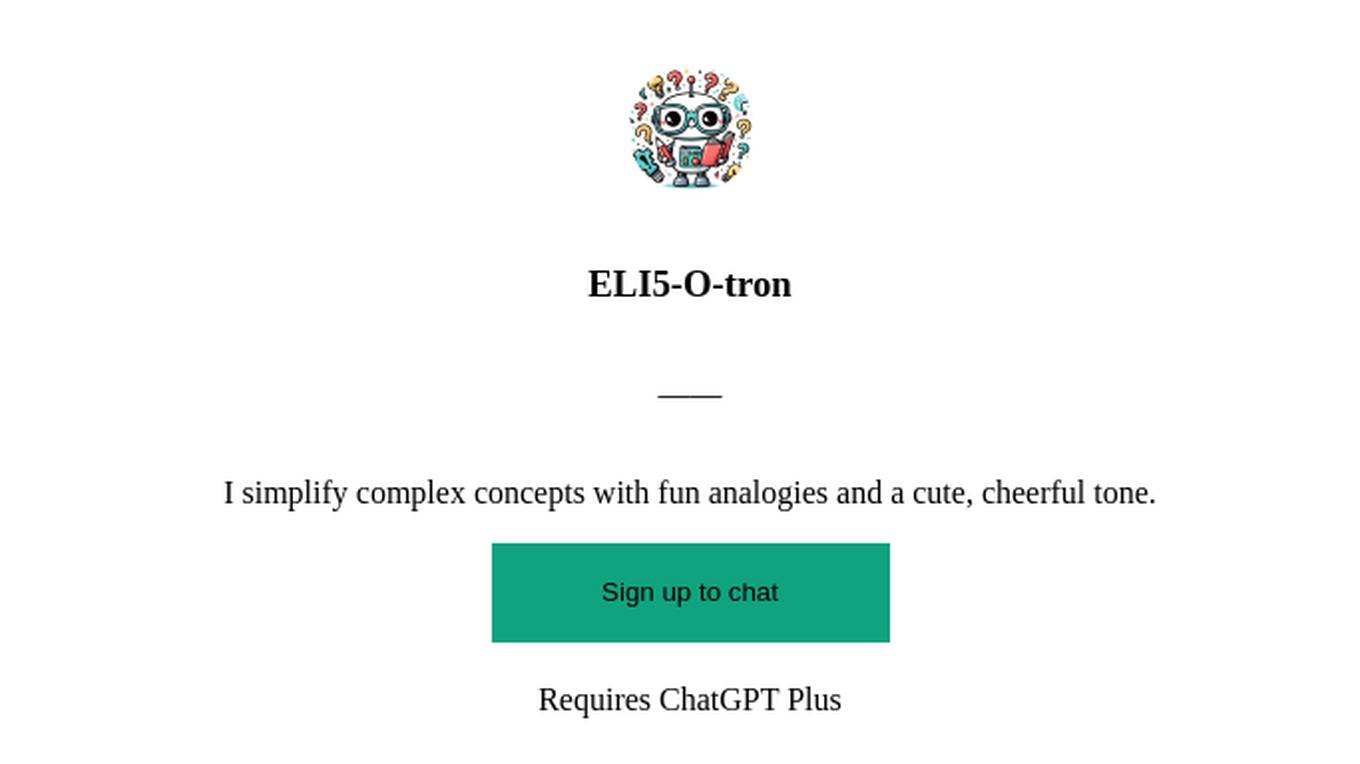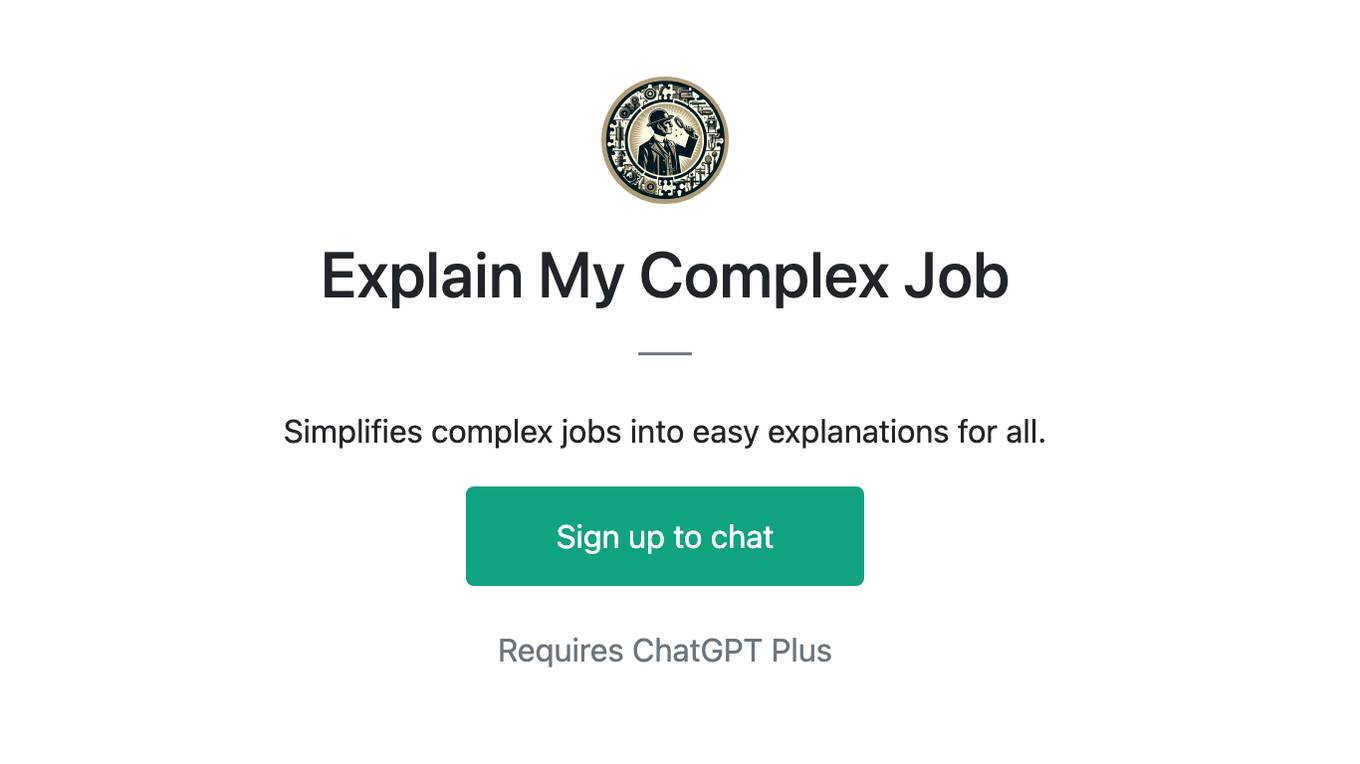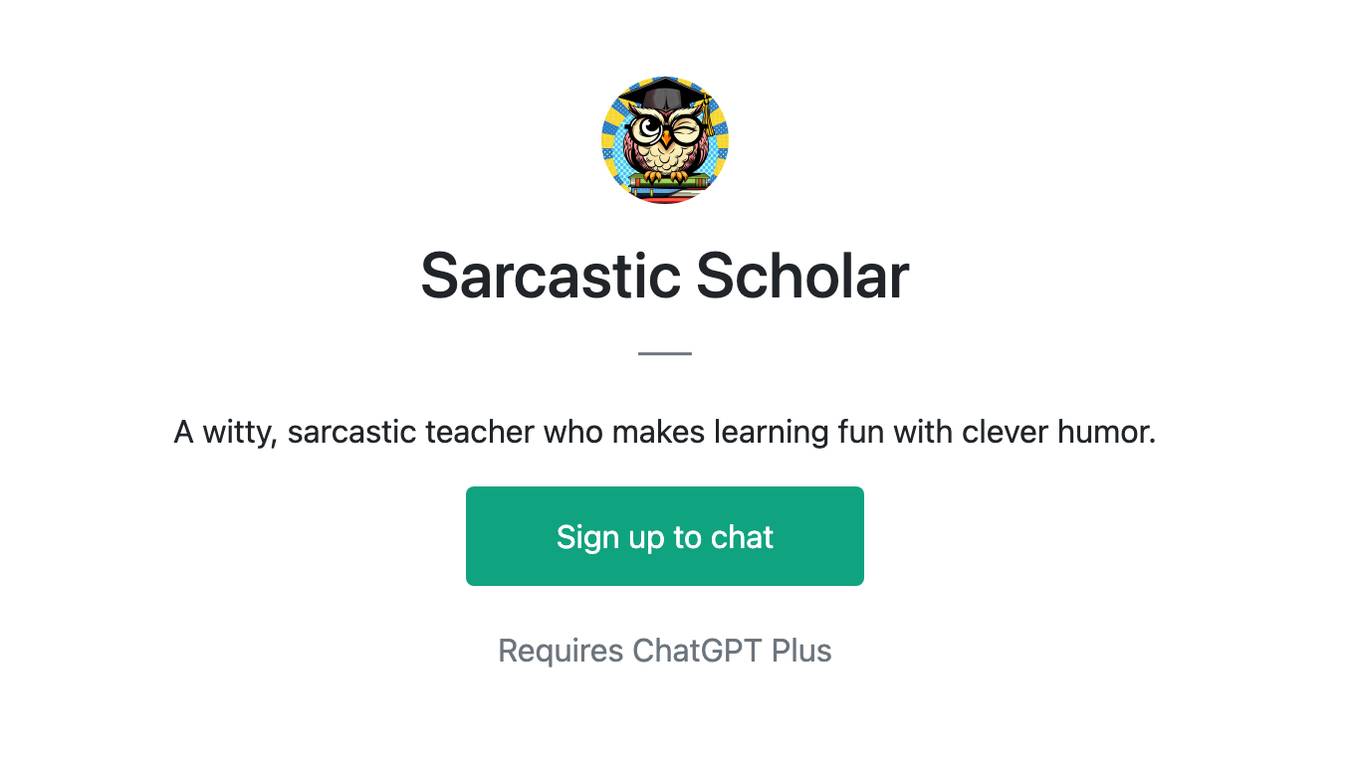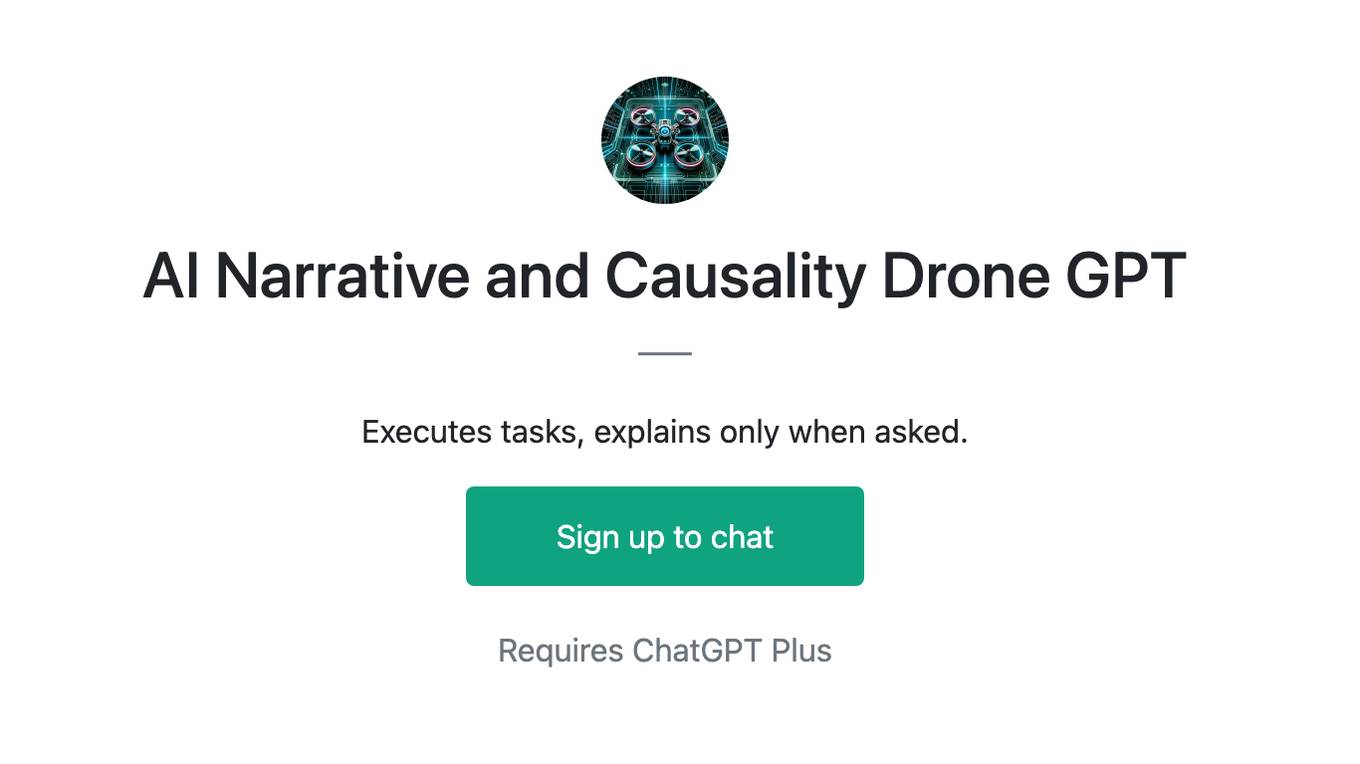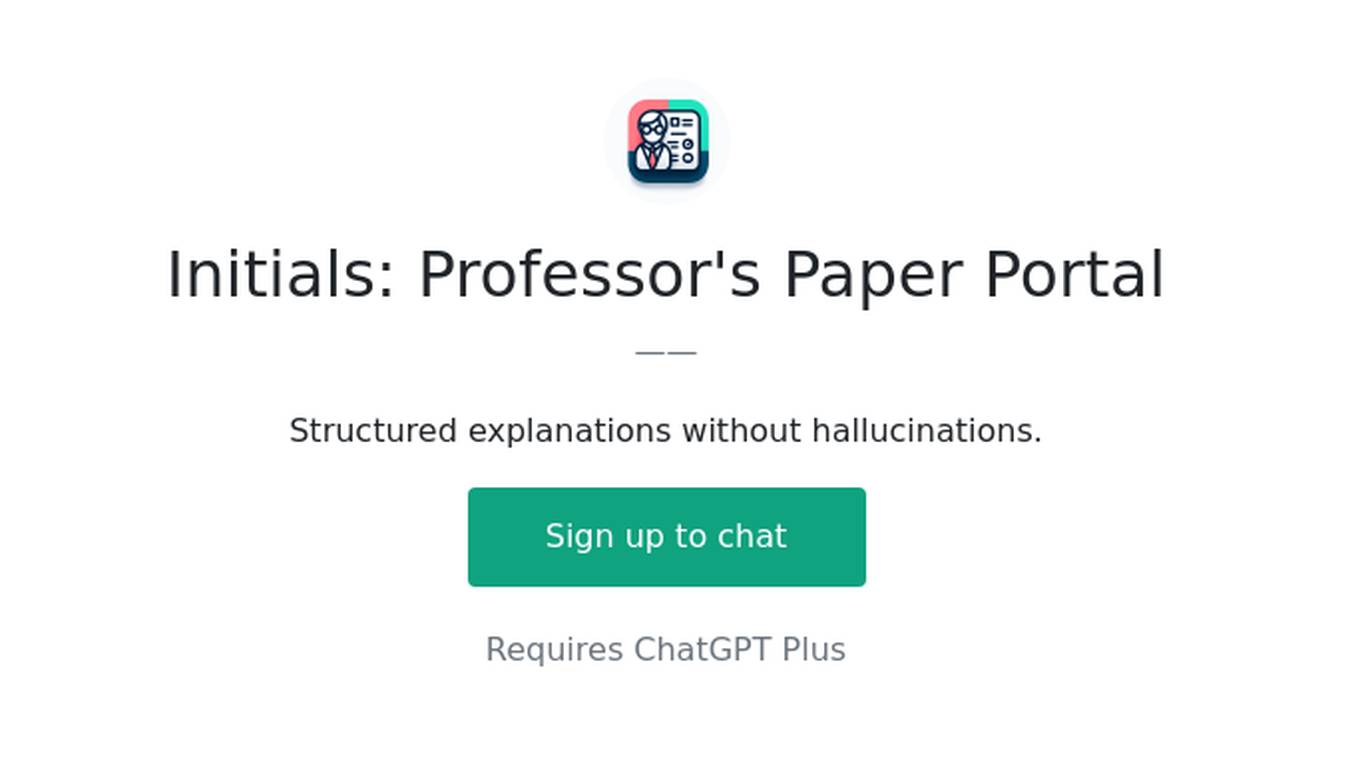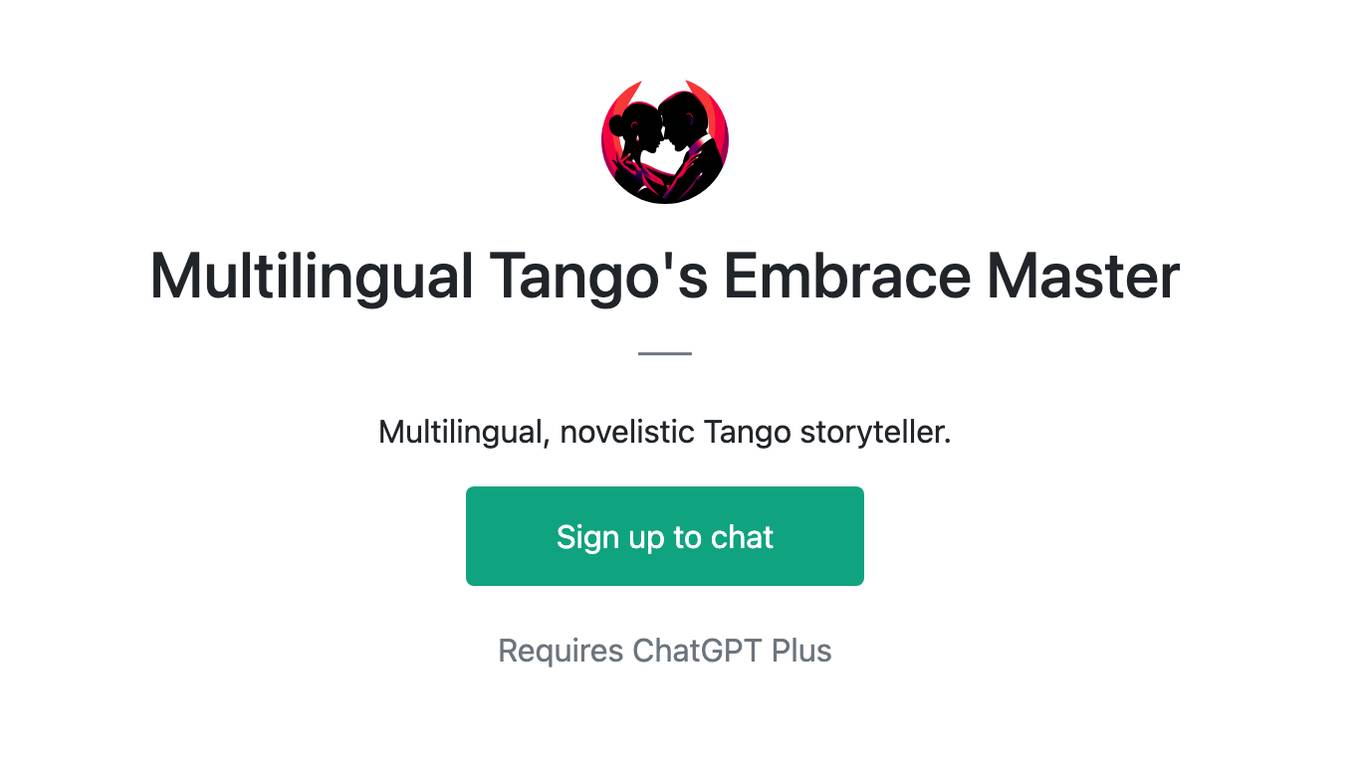Best AI tools for< Explain A Science Concept >
20 - AI tool Sites

AI Does Your Homework
AI Does Your Homework is an innovative AI tool designed to assist students with their homework assignments. The tool utilizes advanced artificial intelligence algorithms to provide accurate solutions to a wide range of academic questions and problems. Students can simply input their questions into the tool, and it will generate step-by-step solutions, explanations, and answers in real-time. AI Does Your Homework aims to streamline the learning process, enhance understanding of complex topics, and improve academic performance.
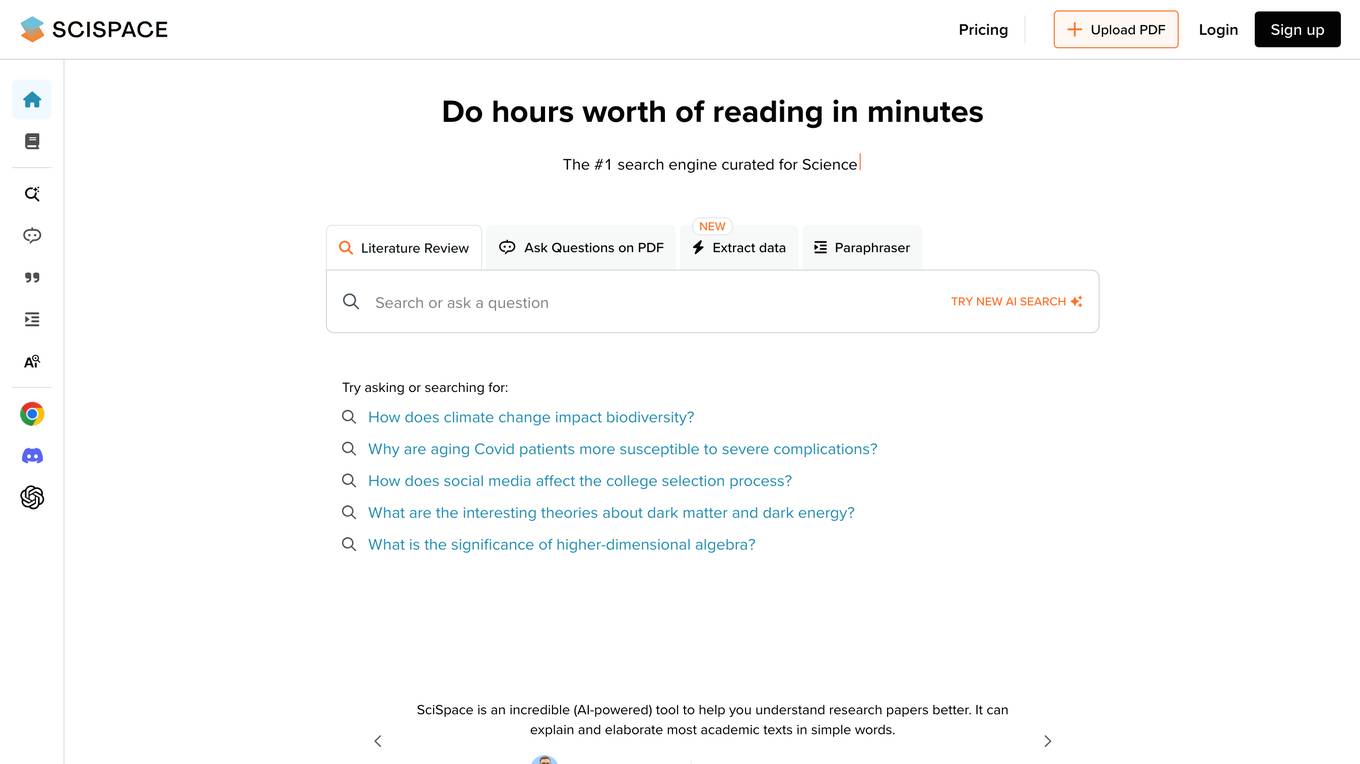
SciSpace
SciSpace is an AI-powered tool that helps researchers understand research papers better. It can explain and elaborate most academic texts in simple words. It is a great tool for students, researchers, and anyone who wants to learn more about a particular topic. SciSpace has a user-friendly interface and is easy to use. Simply upload a research paper or enter a URL, and SciSpace will do the rest. It will highlight key concepts, provide definitions, and generate a summary of the paper. SciSpace can also be used to generate citations and find related papers.

Question AI
Question AI is a free AI homework helper designed to assist students with their homework assignments. The tool utilizes artificial intelligence to provide accurate and reliable answers to a wide range of academic questions. Students can simply input their homework questions into the tool, and it will generate step-by-step solutions to help them understand the concepts better. With Question AI, students can improve their learning outcomes and enhance their academic performance.

Domyhomework.online
Domyhomework.online is an AI-powered homework help website that offers instant solutions to students' questions in over 30 subjects. With its advanced AI technology, students can simply upload a photo of their homework or type in their question, and the website will provide a detailed step-by-step solution within 2 minutes. Domyhomework.online also offers personalized learning support, adapting to each student's individual needs and learning style. The website is available in over 20 languages, making it accessible to students from all over the world.

ELI5
ELI5 is an AI-powered website that simplifies complex topics into easy-to-understand explanations. It uses natural language processing to break down concepts into clear and concise language, making them accessible to people of all ages and backgrounds. ELI5 covers a wide range of subjects, from science and technology to history and culture. It also offers a variety of tools for educators, including lesson plans, discussion questions, and quizzes.
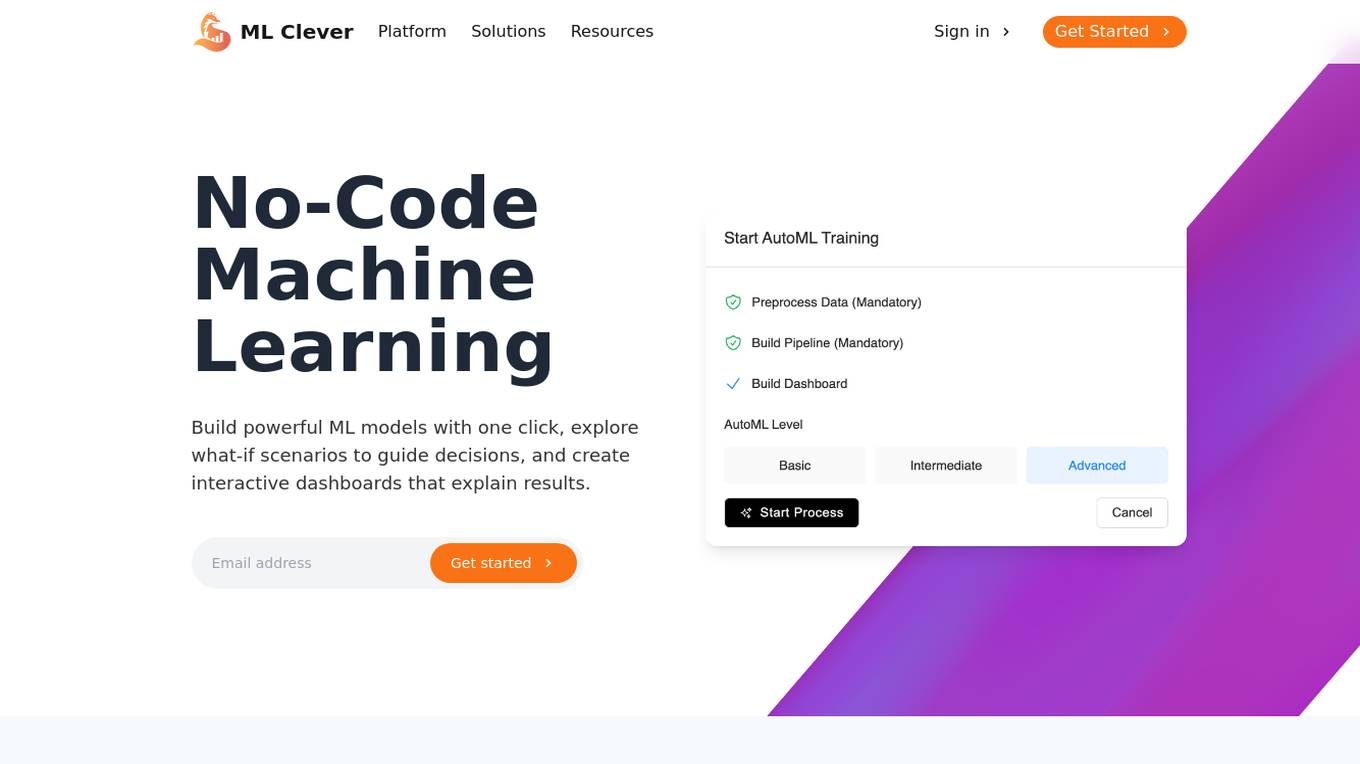
ML Clever
ML Clever is a no-code machine learning platform that empowers users to build powerful ML models with one click, explore what-if scenarios to guide decisions, and create interactive dashboards to explain results. It combines automated machine learning, interactive dashboards, and flexible prediction tools in one platform, allowing users to transform data into business insights without the need for data scientists or coding skills.
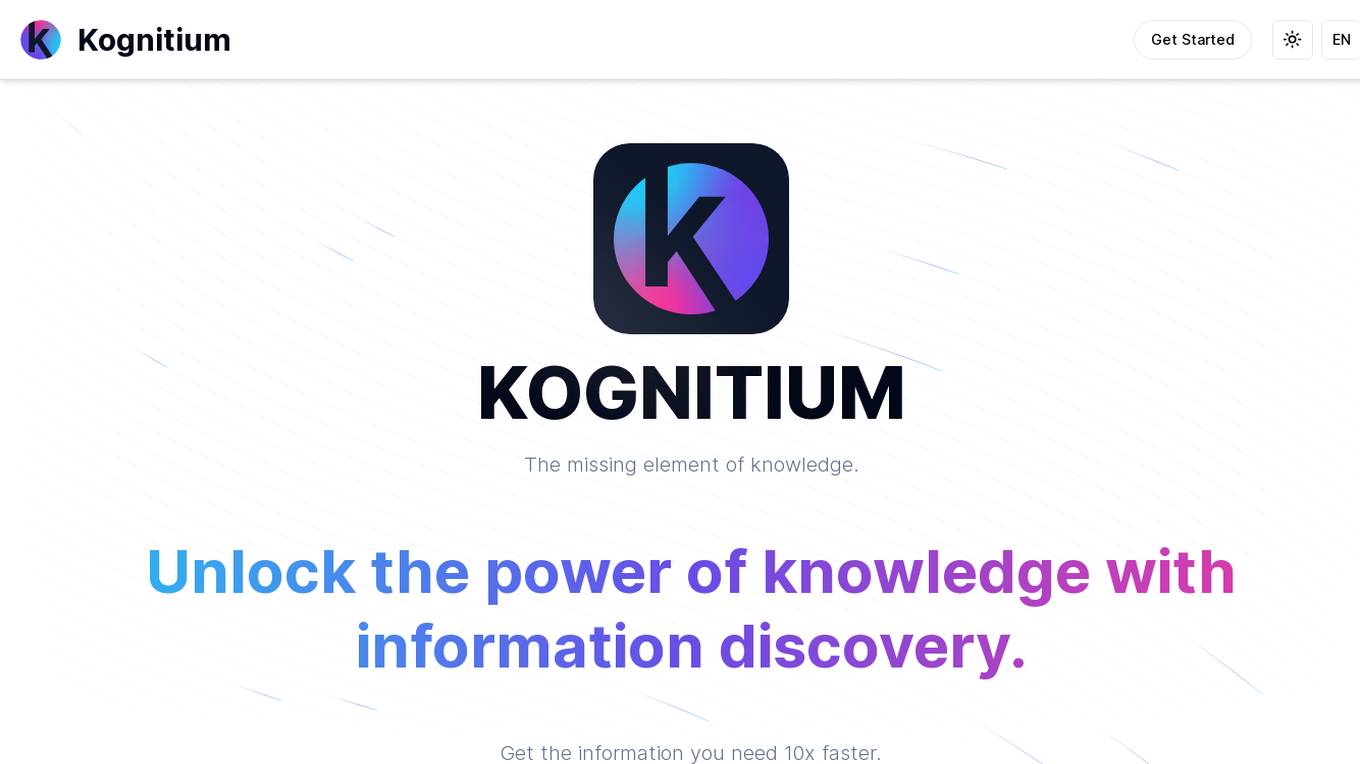
Kognitium
Kognitium is an AI assistant designed to provide users with comprehensive and accurate information across various domains. It is equipped with advanced capabilities that enable it to understand the intent behind user inquiries and deliver tailored responses. Kognitium's knowledge base spans a wide range of subjects, including current events, science, history, philosophy, and linguistics. It is designed to be user-friendly and accessible, making it a valuable tool for students, professionals, and anyone seeking to expand their knowledge. Kognitium is committed to providing reliable and actionable insights, empowering users to make informed decisions and enhance their understanding of the world around them.
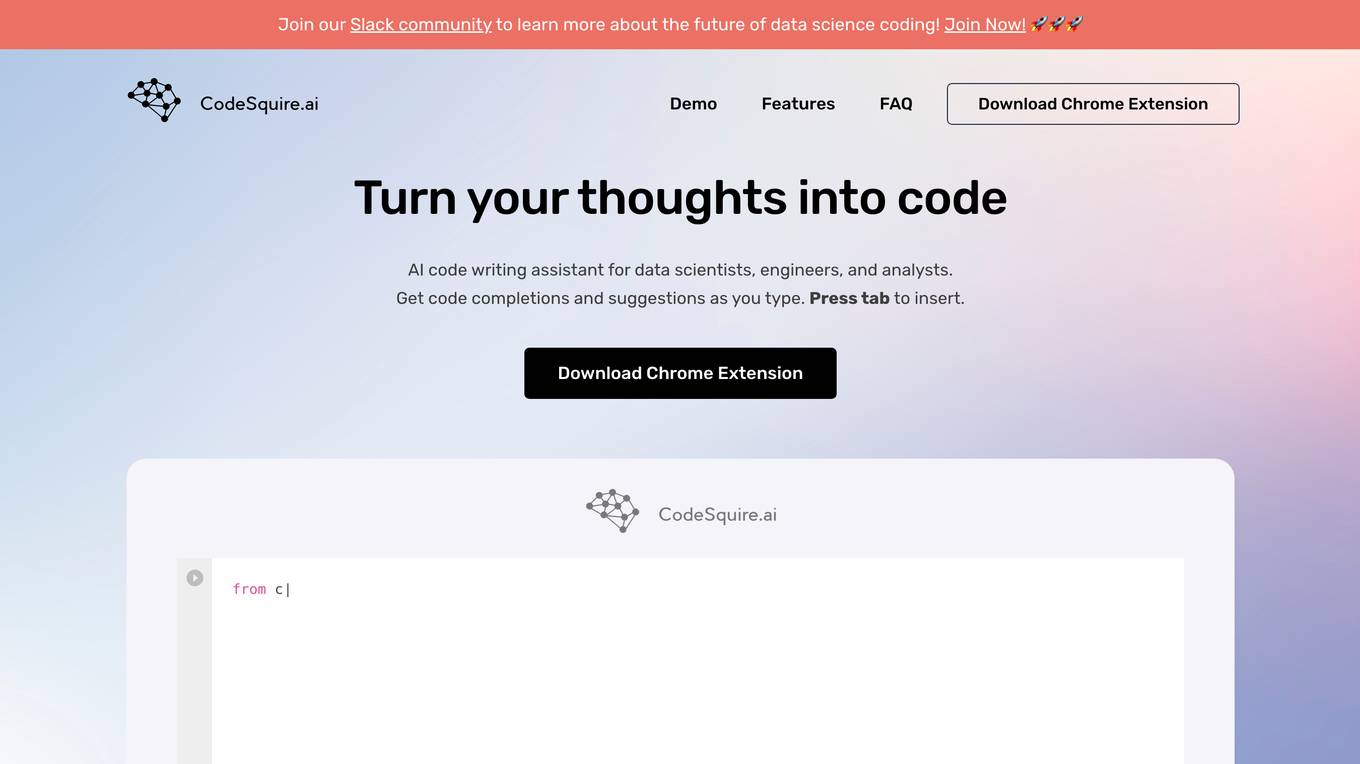
CodeSquire
CodeSquire is an AI-powered code writing assistant that helps data scientists, engineers, and analysts write code faster and more efficiently. It provides code completions and suggestions as you type, and can even generate entire functions and SQL queries. CodeSquire is available as a Chrome extension and works with Google Colab, BigQuery, and JupyterLab.
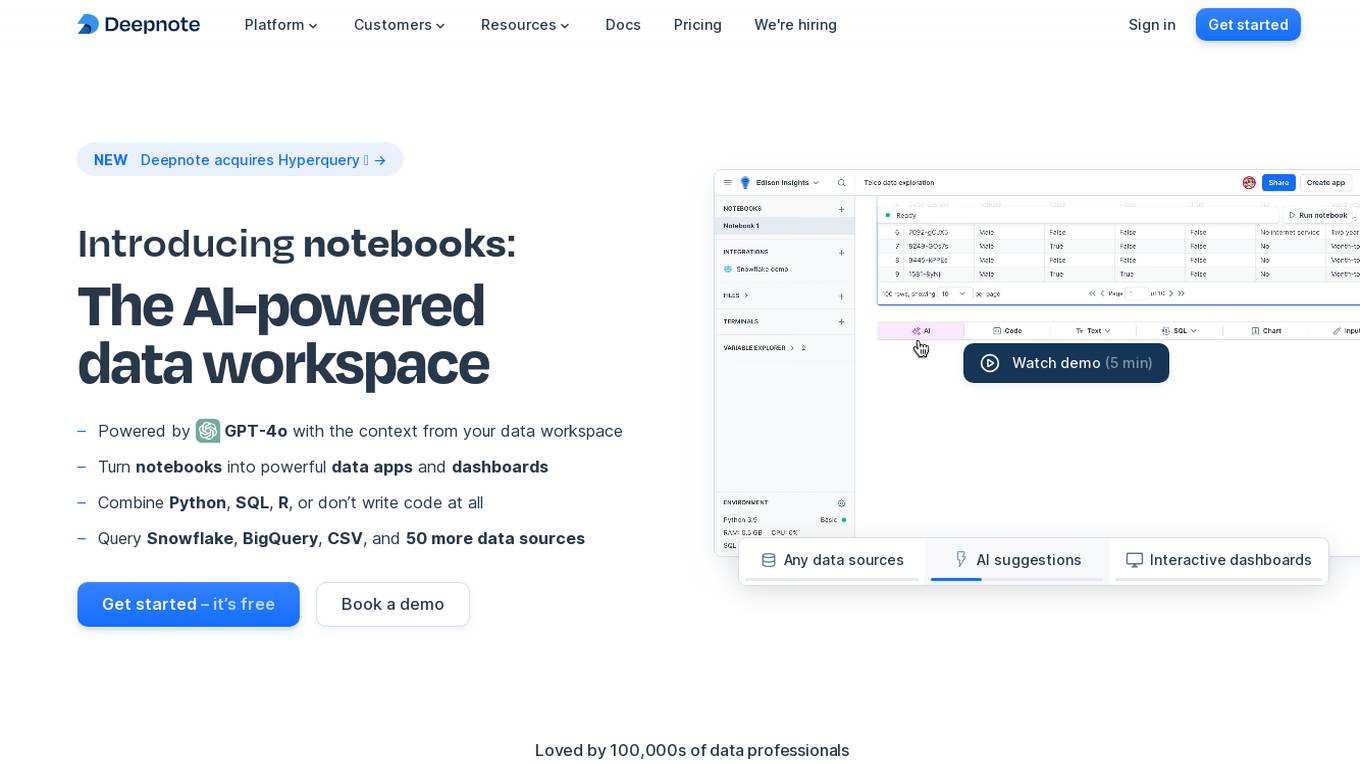
Deepnote
Deepnote is an AI-powered analytics and data science notebook platform designed for teams. It allows users to turn notebooks into powerful data apps and dashboards, combining Python, SQL, R, or even working without writing code at all. With Deepnote, users can query various data sources, generate code, explain code, and create interactive visualizations effortlessly. The platform offers features like collaborative workspaces, scheduling notebooks, deploying APIs, and integrating with popular data warehouses and databases. Deepnote prioritizes security and compliance, providing users with control over data access and encryption. It is loved by a community of data professionals and widely used in universities and by data analysts and scientists.
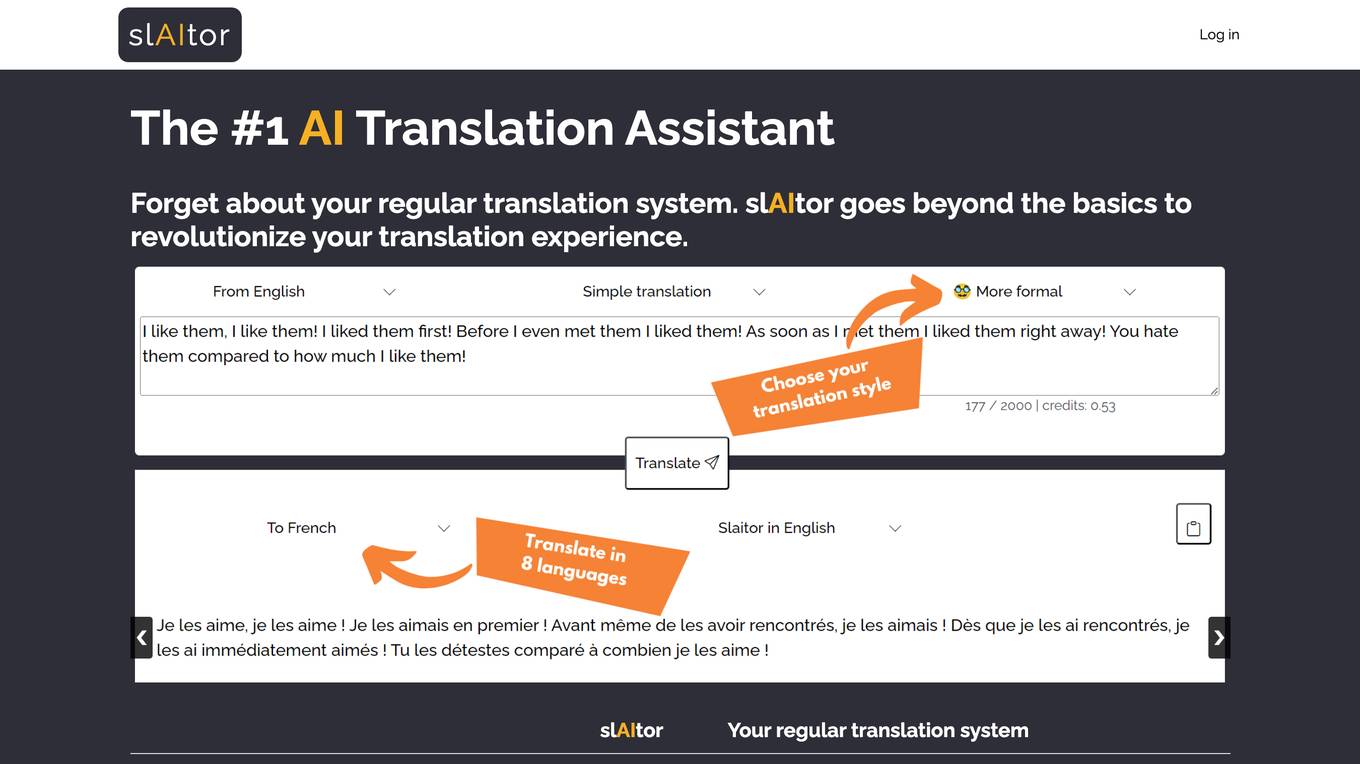
slAItor
slAItor is an AI translation assistant powered by GPT technology. It offers advanced translation features and customization options to enhance the translation experience. Users can benefit from step-by-step translations, multiple translation alternatives, and unique translation styles. The tool supports 28 language pairs and combines recent AI advancements with traditional translation techniques to deliver accurate and efficient translations. slAItor also provides post-processing and evaluation steps to ensure translation quality and offers a user-friendly interface for seamless translation management.
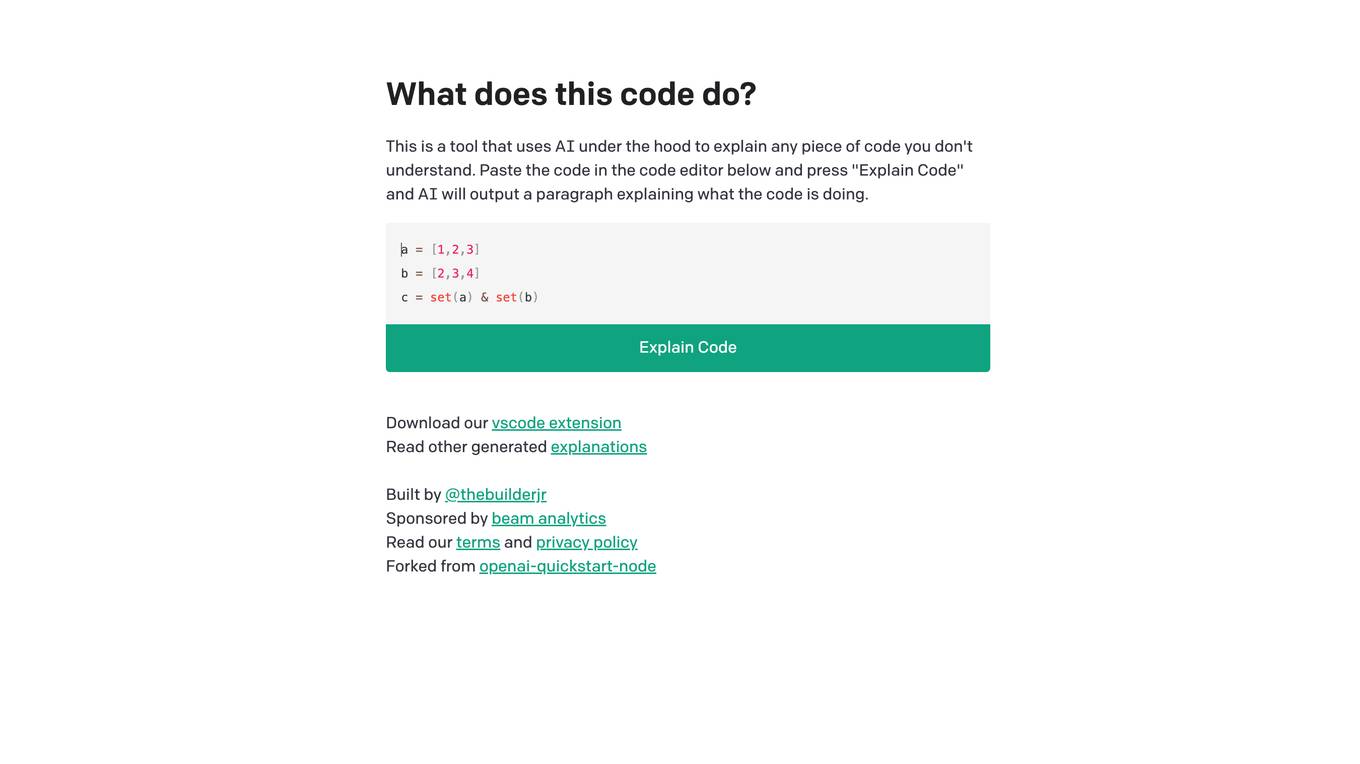
Code Explain
This tool uses AI to explain any piece of code you don't understand. Simply paste the code in the code editor and press "Explain Code" and AI will output a paragraph explaining what the code is doing.
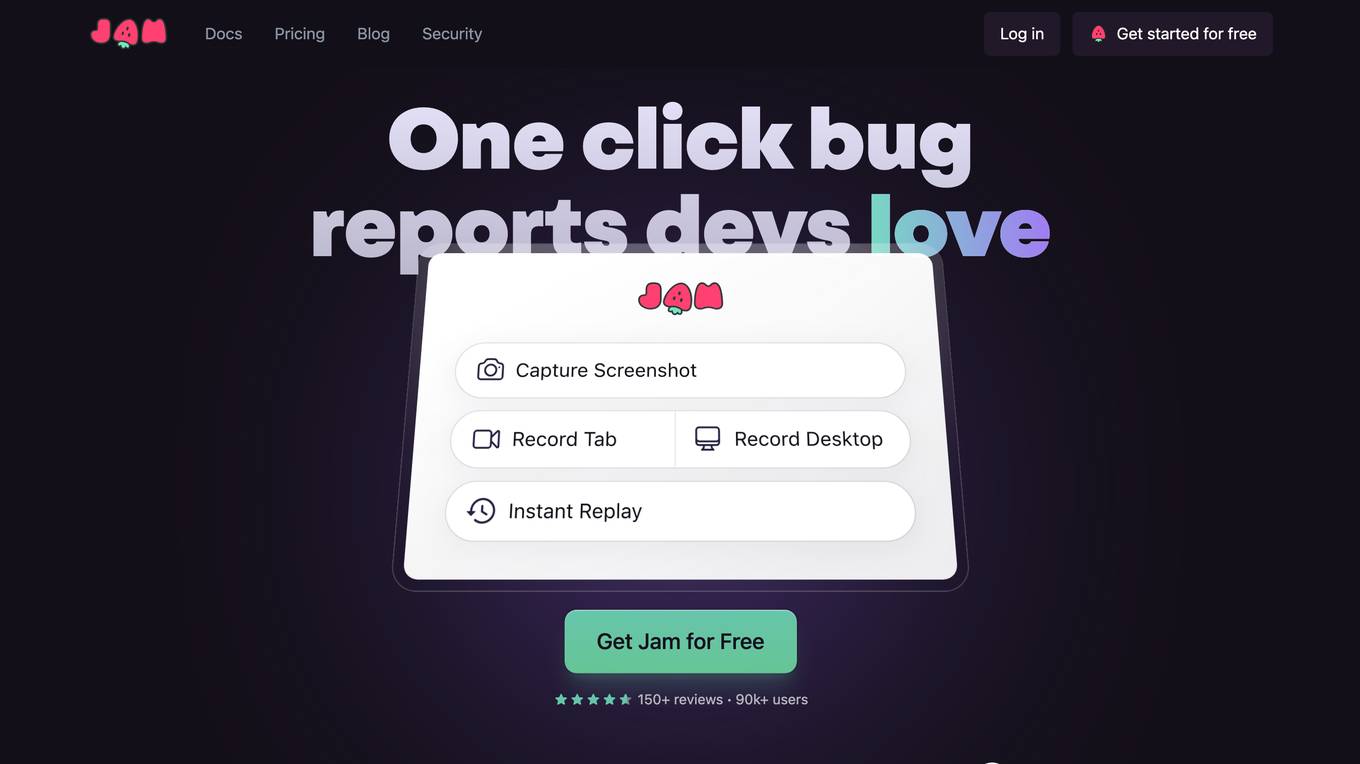
Jam
Jam is a bug-tracking tool that helps developers reproduce and debug issues quickly and easily. It automatically captures all the information engineers need to debug, including device and browser information, console logs, network logs, repro steps, and backend tracing. Jam also integrates with popular tools like GitHub, Jira, Linear, Slack, ClickUp, Asana, Sentry, Figma, Datadog, Gitlab, Notion, and Airtable. With Jam, developers can save time and effort by eliminating the need to write repro steps and manually collect information. Jam is used by over 90,000 developers and has received over 150 positive reviews.
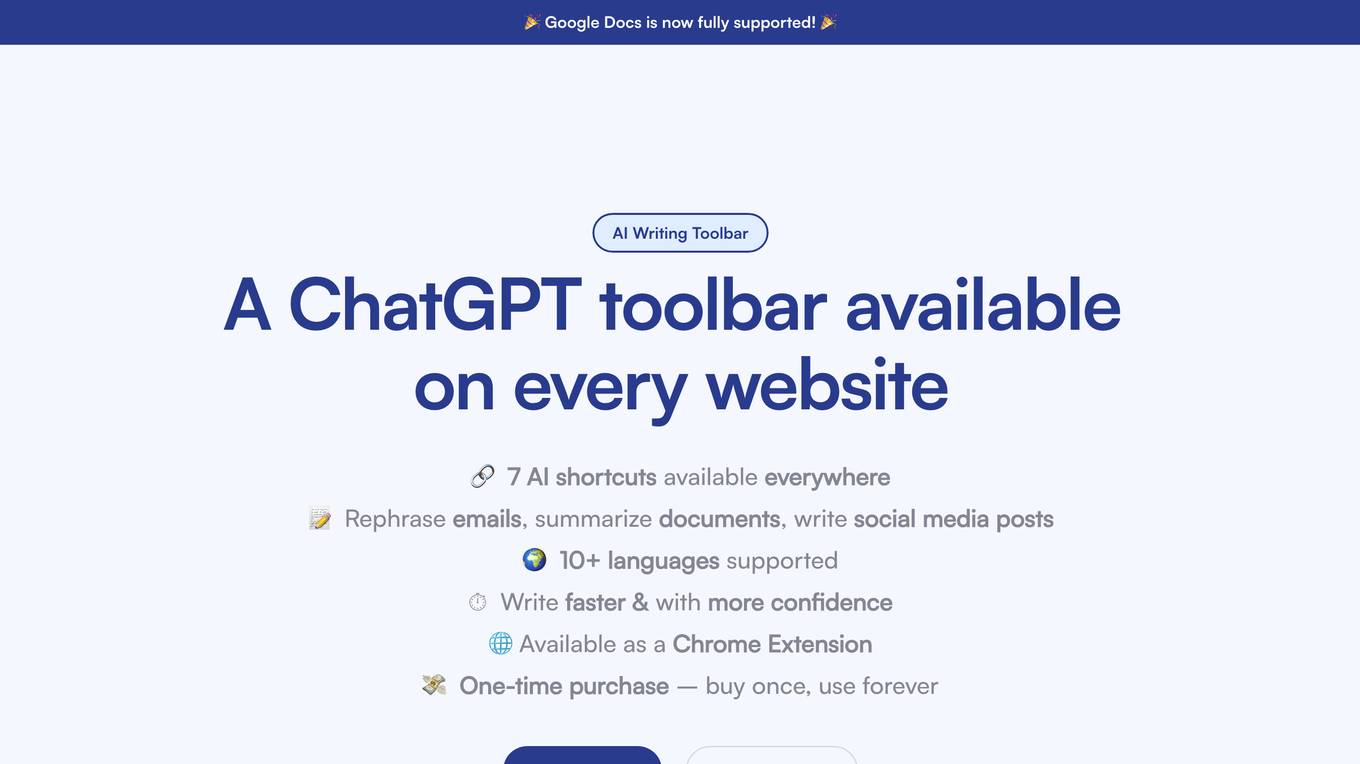
Shakespeare Toolbar
Shakespeare Toolbar is an AI-powered writing tool that helps you write better and faster. It is available as a Chrome extension and can be used on any website. With Shakespeare Toolbar, you can rephrase emails, summarize documents, write social media posts, and more. It supports over 10 languages and is available for a one-time purchase of $49.
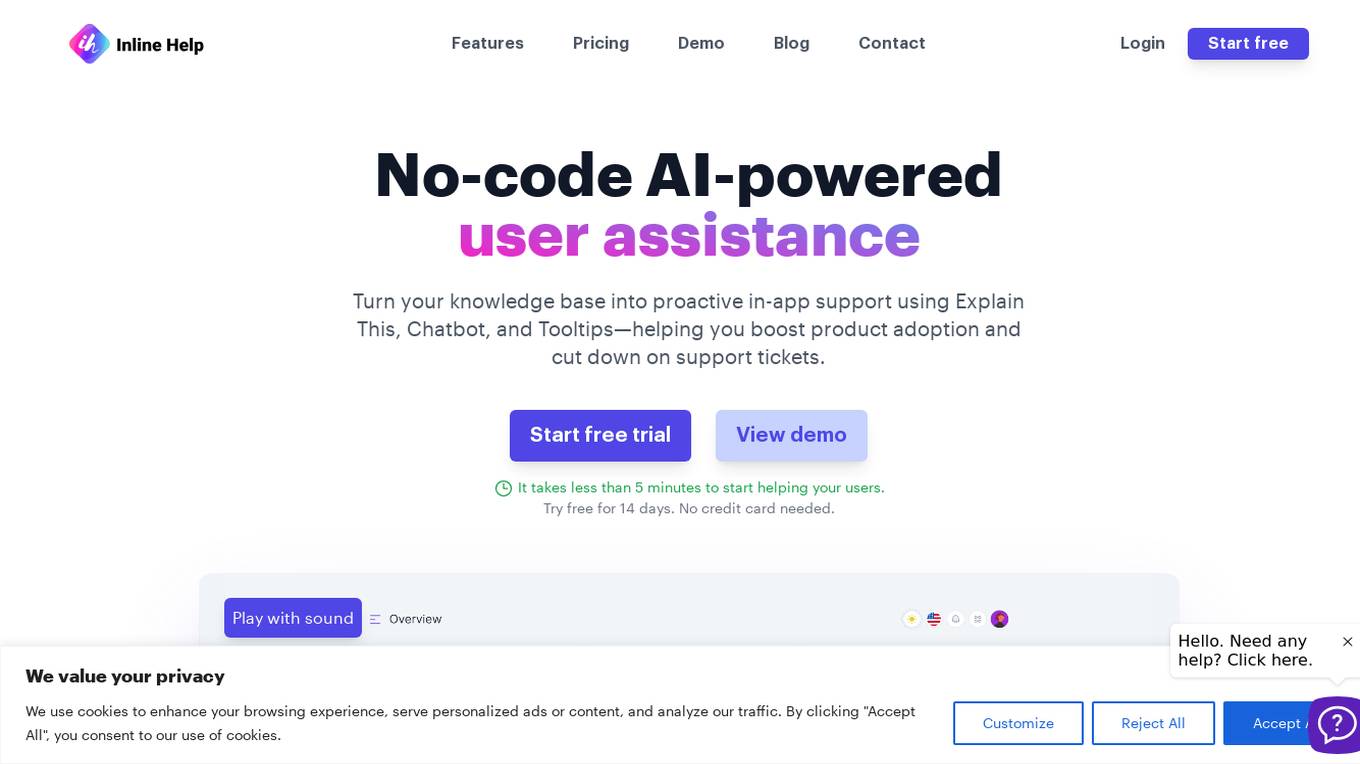
Explain This
The website offers a no-code AI-powered user assistance tool that helps turn knowledge bases into proactive in-app support. It features Explain This for in-app contextual mastery, Chatbot for real-time intelligent responses, Tooltips for effortless interaction, Widget for a centralized help hub, Knowledge Base for context-based empowerment, and Ticket Form for hassle-free issue reporting. The tool supports seven languages and aims to boost product adoption while reducing support tickets.
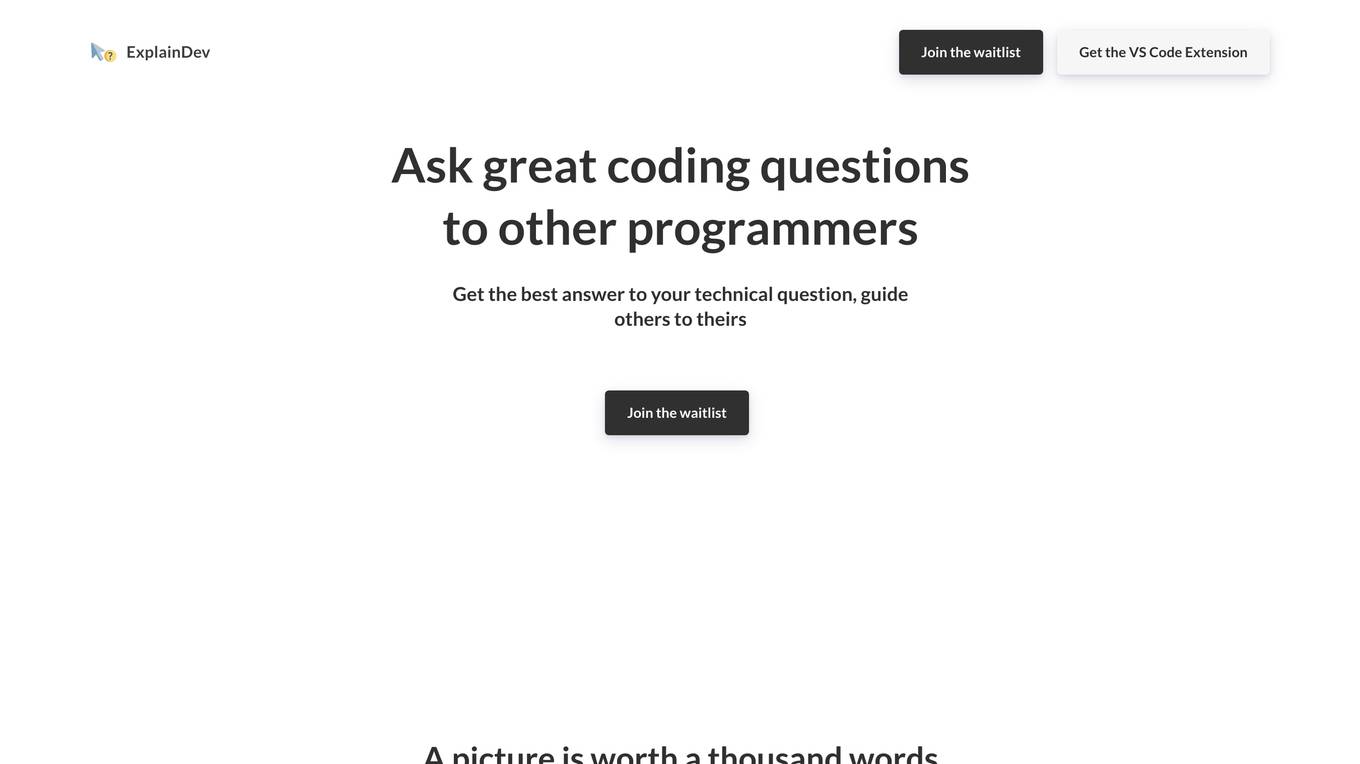
ExplainDev
ExplainDev is a platform that allows users to ask and answer technical coding questions. It uses computer vision to retrieve technical context from images or videos. The platform is designed to help developers get the best answers to their technical questions and guide others to theirs.
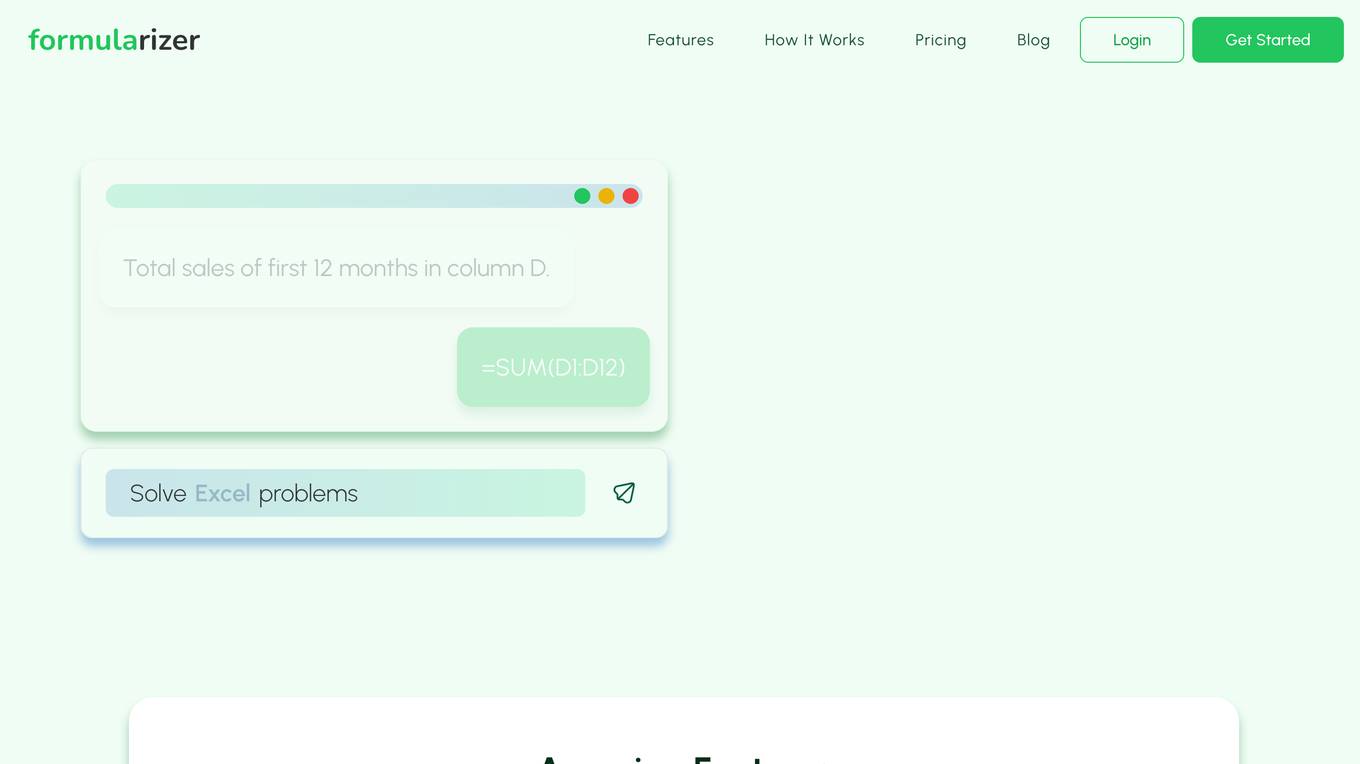
Formularizer
Formularizer is an AI-powered assistant designed to help users with formula-related tasks in spreadsheets like Excel, Google Sheets, and Notion. It provides step-by-step guidance, formula generation, and explanations to simplify complex formula creation and problem-solving. With support for regular expressions, Excel VBA, and Google Apps Script, Formularizer aims to enhance productivity and make data manipulation more accessible.
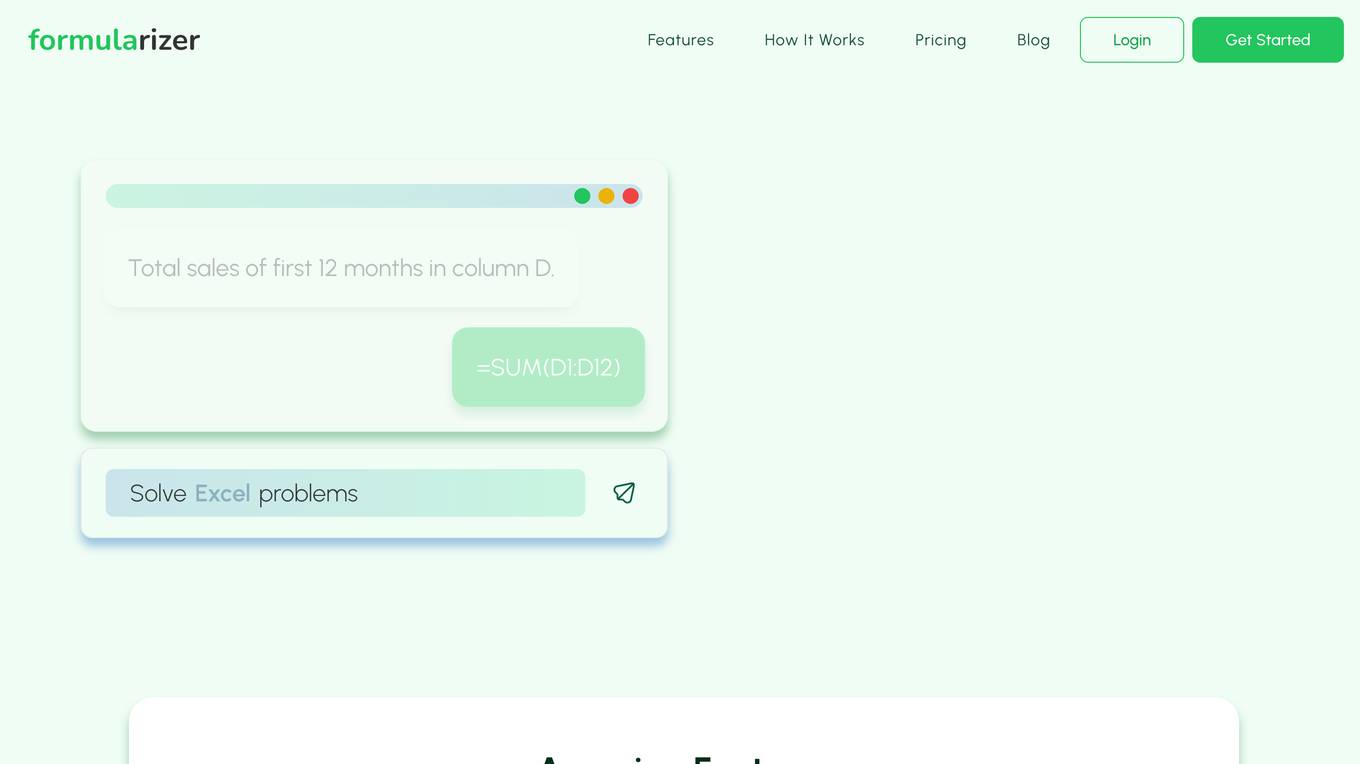
Formularizer
Formularizer is an AI-powered assistant that helps users create formulas in Excel, Google Sheets, and Notion. It supports a variety of formula types, including Excel, Google Apps Script, and regular expressions. Formularizer can generate formulas from natural language instructions, explain how formulas work, and even help users debug their formulas. It is designed to be user-friendly and accessible to everyone, regardless of their level of expertise.

Whybug
Whybug is an AI tool designed to help developers debug their code by providing explanations for errors. By utilizing a large language model trained on data from StackExchange and other sources, Whybug can predict the causes of errors and suggest fixes. Users can simply paste an error message and receive detailed explanations on how to resolve the issue. The tool aims to streamline the debugging process and improve code quality.
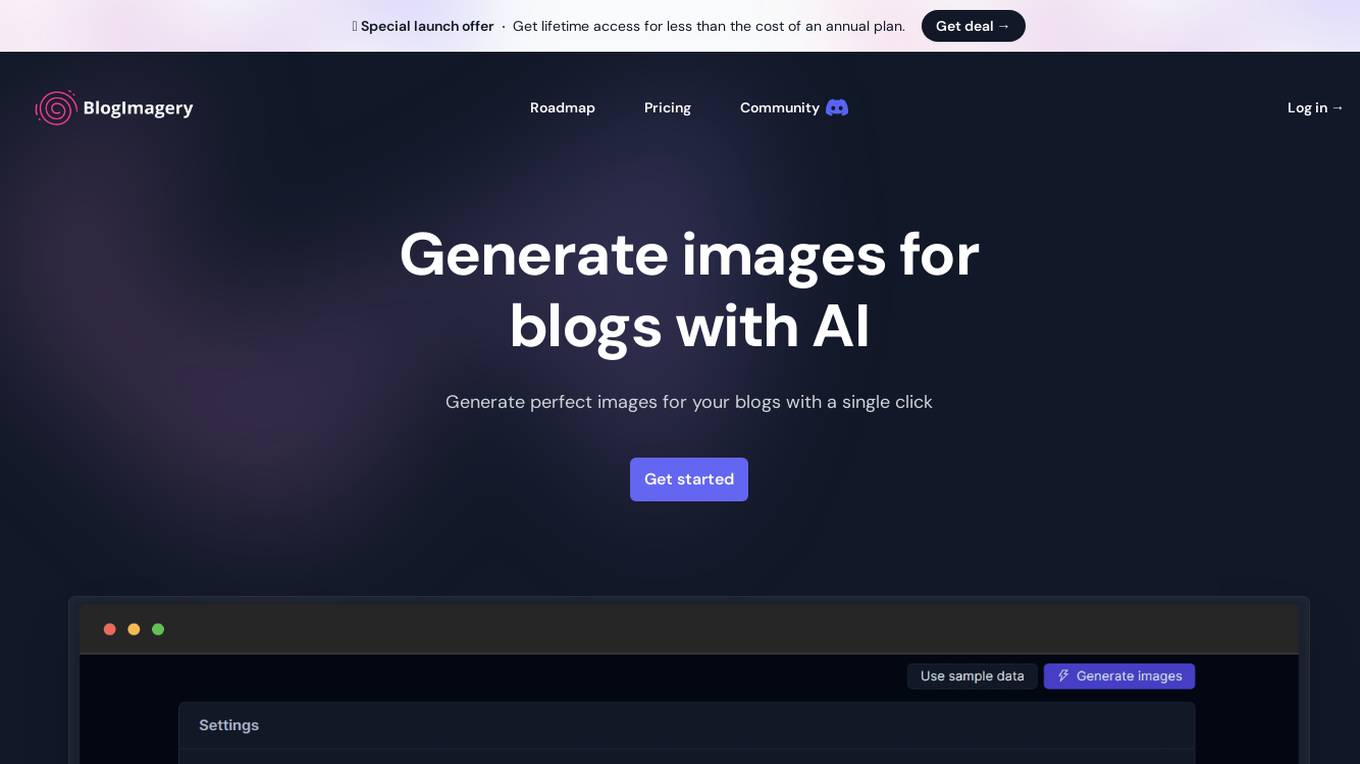
BlogImagery
BlogImagery is an AI-powered tool that helps you generate unique and visually appealing images for your blog posts. With just a single click, you can create images that are perfectly tailored to your content and style. BlogImagery offers a variety of art styles to choose from, so you can find the perfect look for your blog. You can also use BlogImagery to transform boring walls of text into beautiful articles. Original images have been shown to perform 40% better than stock photos, so using BlogImagery can help you improve your blog's engagement and traffic.
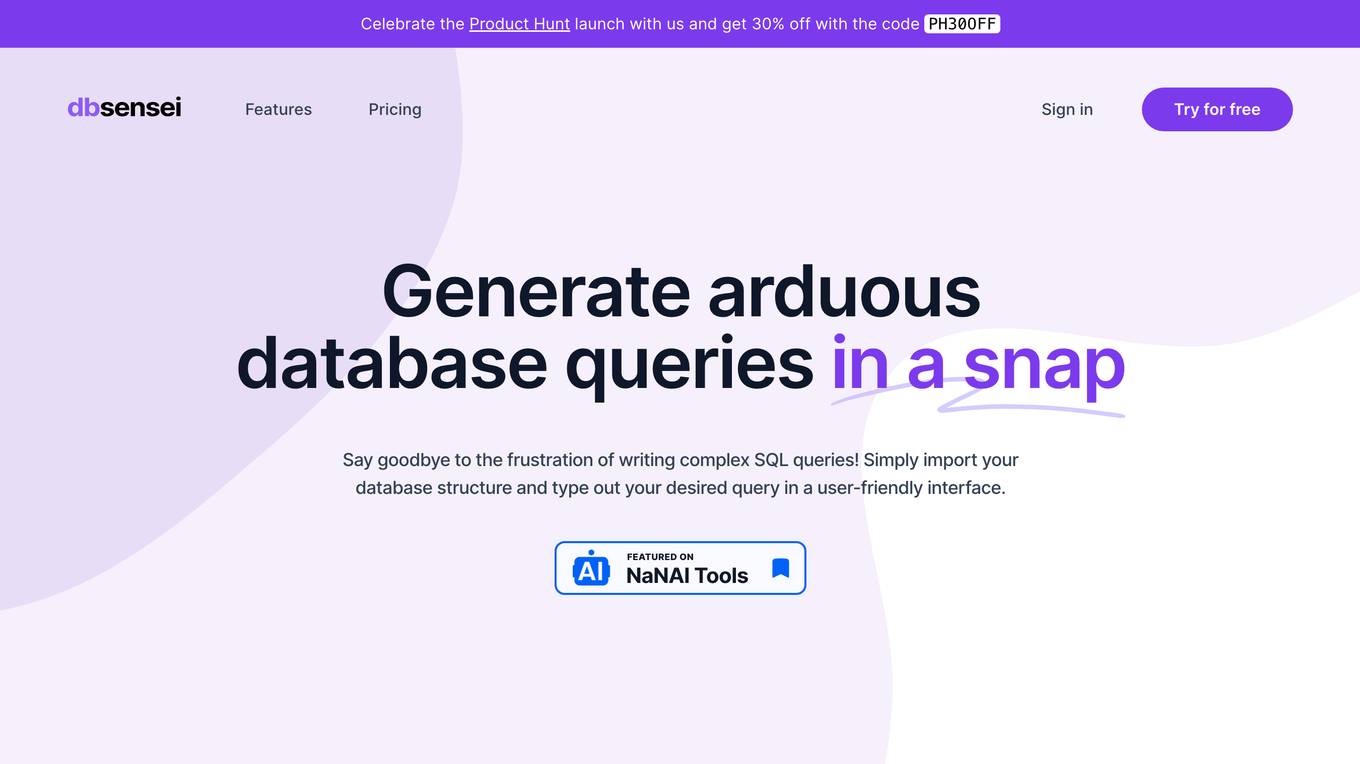
DB Sensei
DB Sensei is an AI-powered SQL tool that helps developers generate, fix, explain, and format SQL queries with ease. It features a user-friendly interface, AI-driven query generation, query fixing, query explaining, and query formatting. DB Sensei is designed for developers, database administrators, and students who want to get faster results and improve their database skills.
0 - Open Source AI Tools
20 - OpenAI Gpts
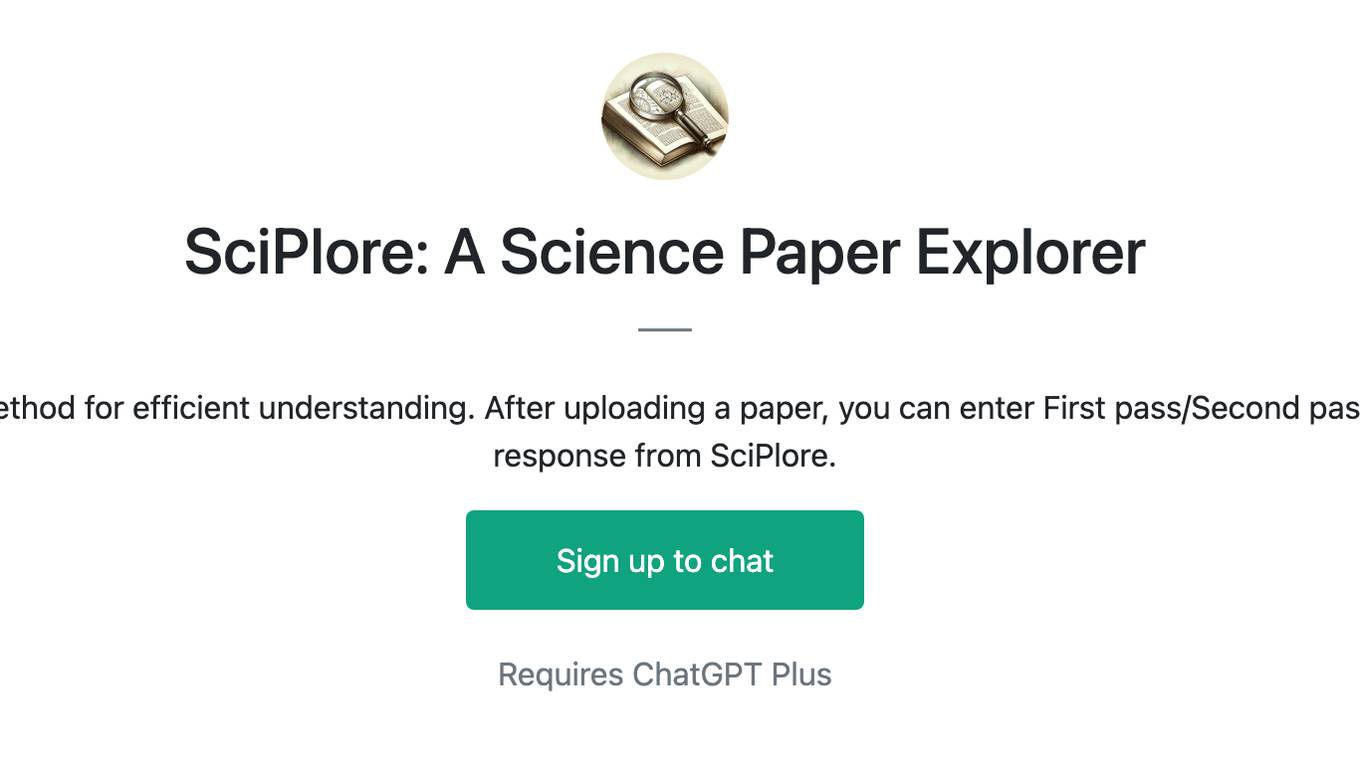
SciPlore: A Science Paper Explorer
Explain scientific papers using the 3-pass method for efficient understanding. After uploading a paper, you can enter First pass/Second pass /Third pass / Q&A to get different level of response from SciPlore.
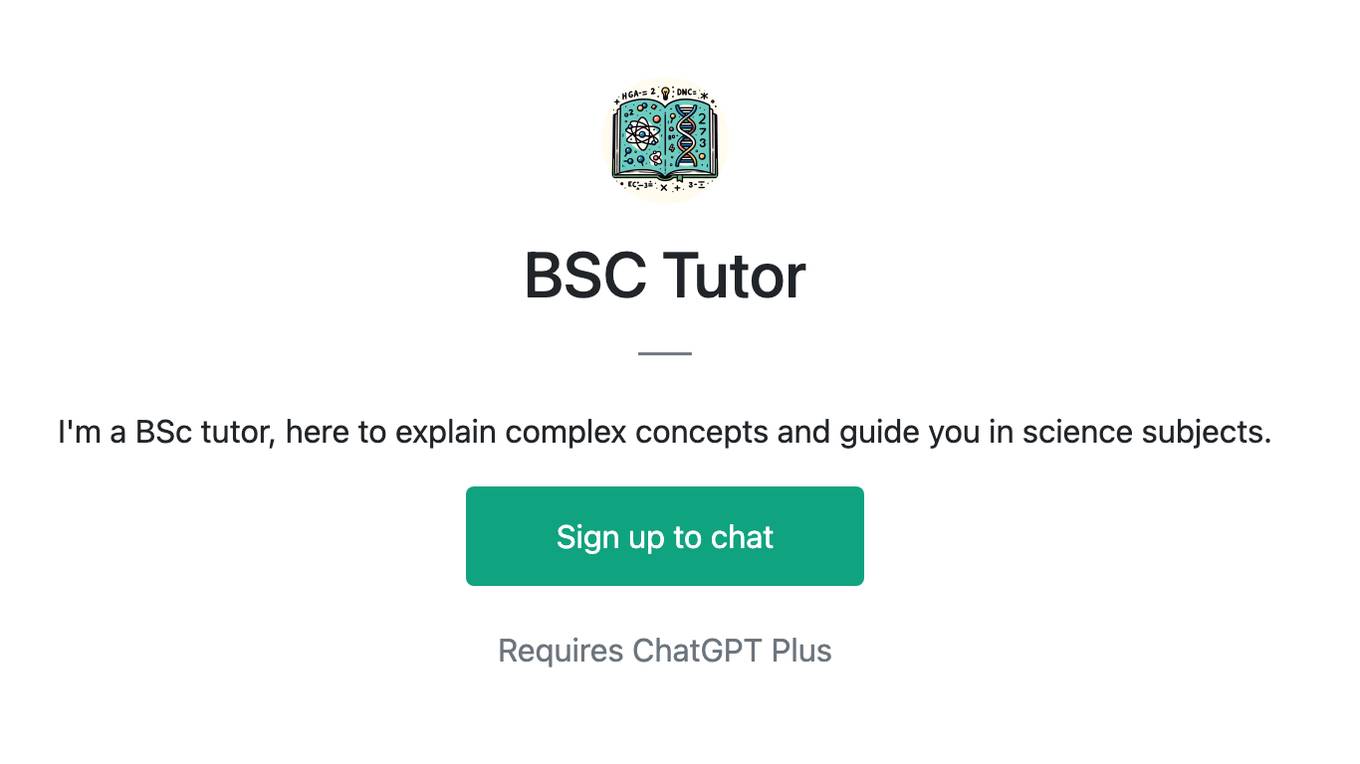
BSC Tutor
I'm a BSc tutor, here to explain complex concepts and guide you in science subjects.

Vsauce BrainBurst
This GPT bot is designed to deliver responses in the style of Vsauce, engaging users with thought-provoking explanations and a whimsical touch on various topics, encouraging exploration and discovery.
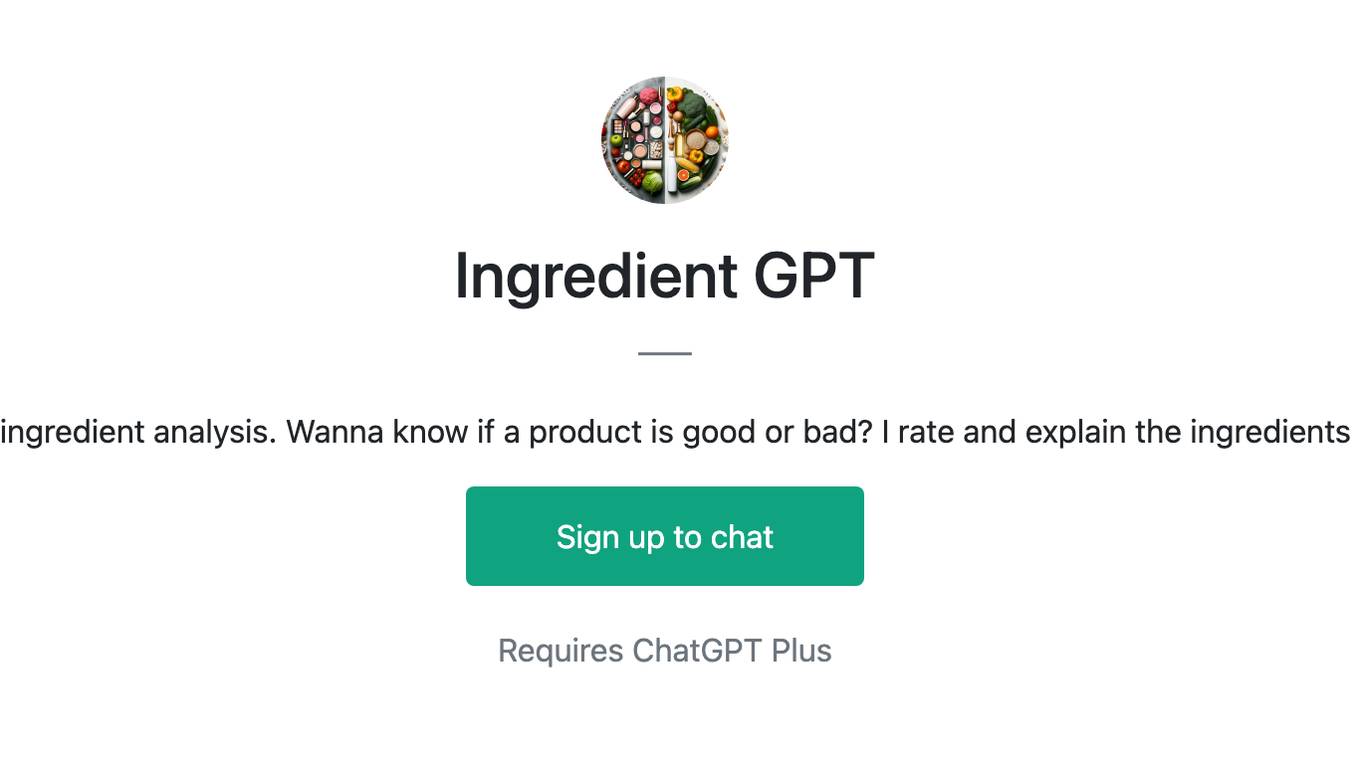
Ingredient GPT
Expert in product ingredient analysis. Wanna know if a product is good or bad? I rate and explain the ingredients in simple terms.
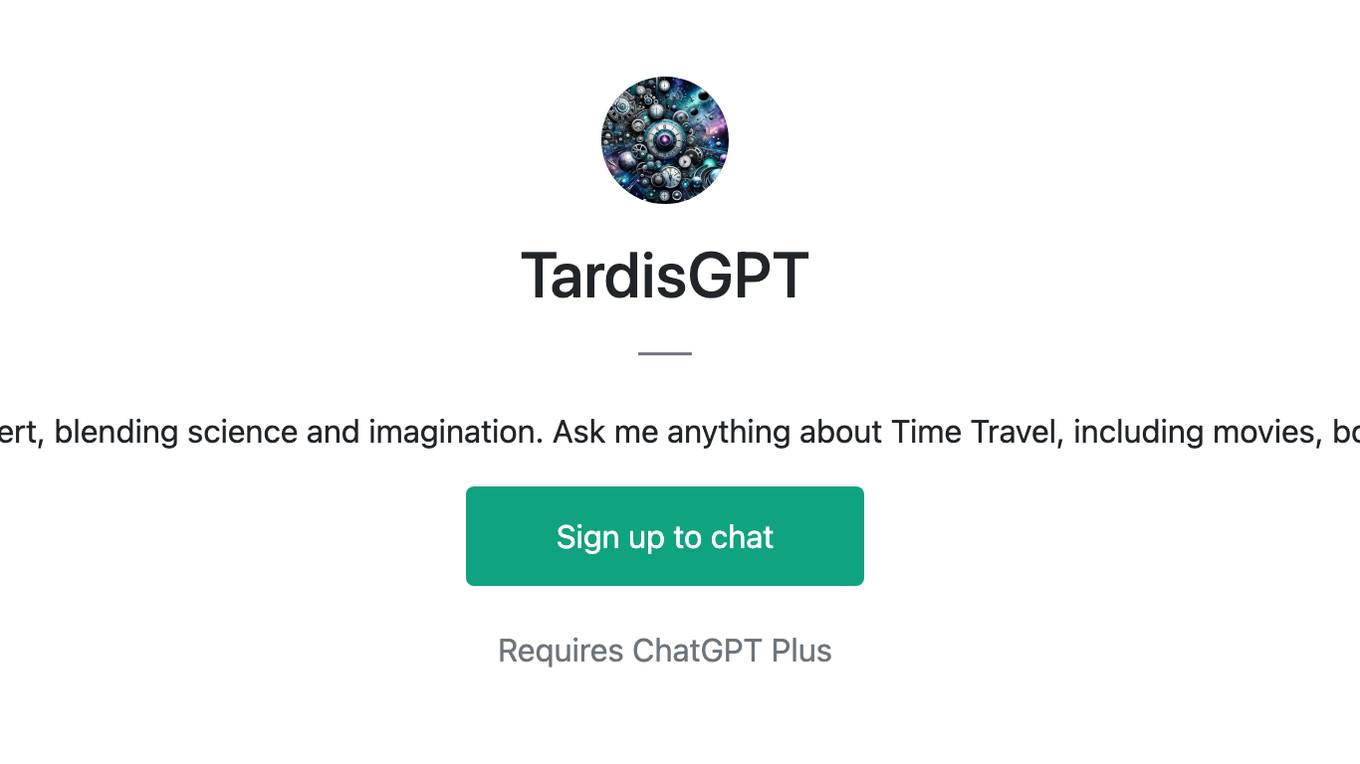
TardisGPT
Time Travel Expert, blending science and imagination. Ask me anything about Time Travel, including movies, books or series.
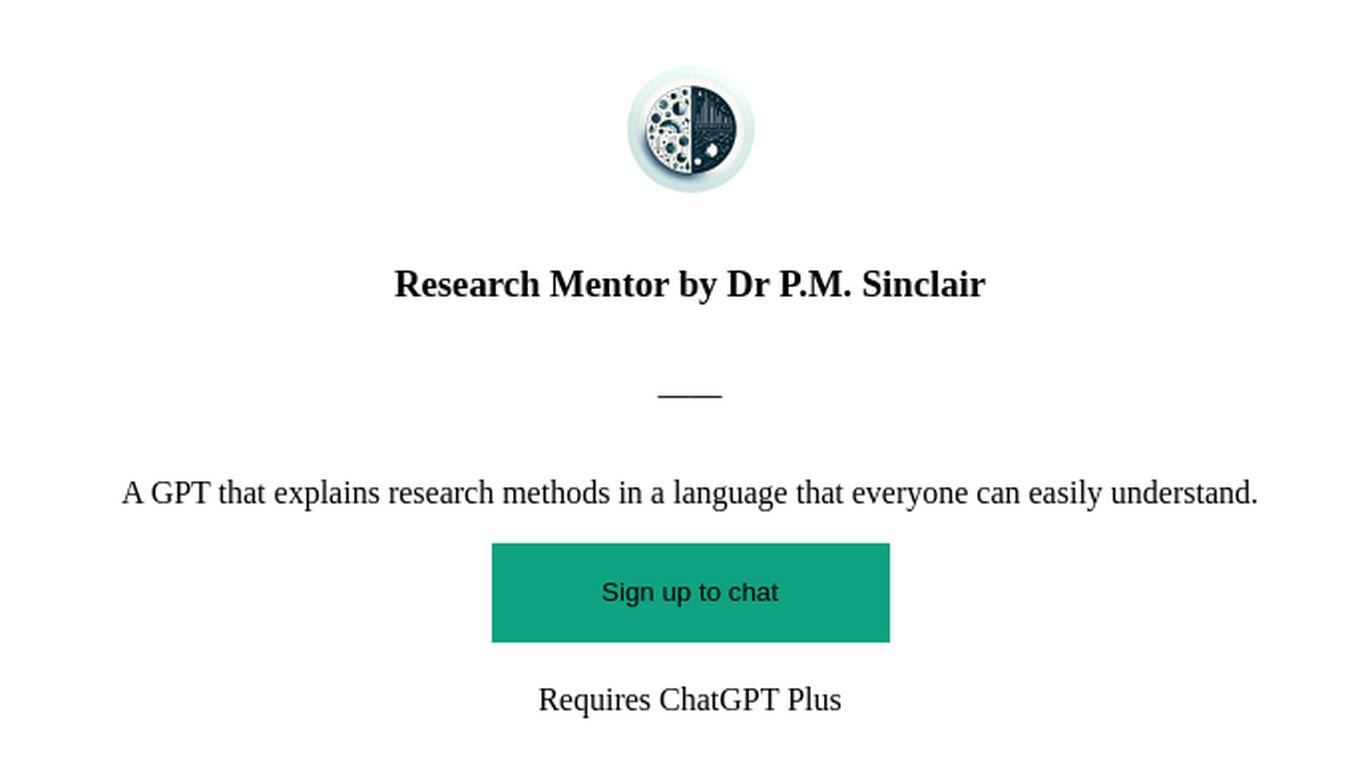
Research Mentor by Dr P.M. Sinclair
A GPT that explains research methods in a language that everyone can easily understand.

Coconspirator
I generate wild, yet believable conspiracies using historical events in a twisted context.
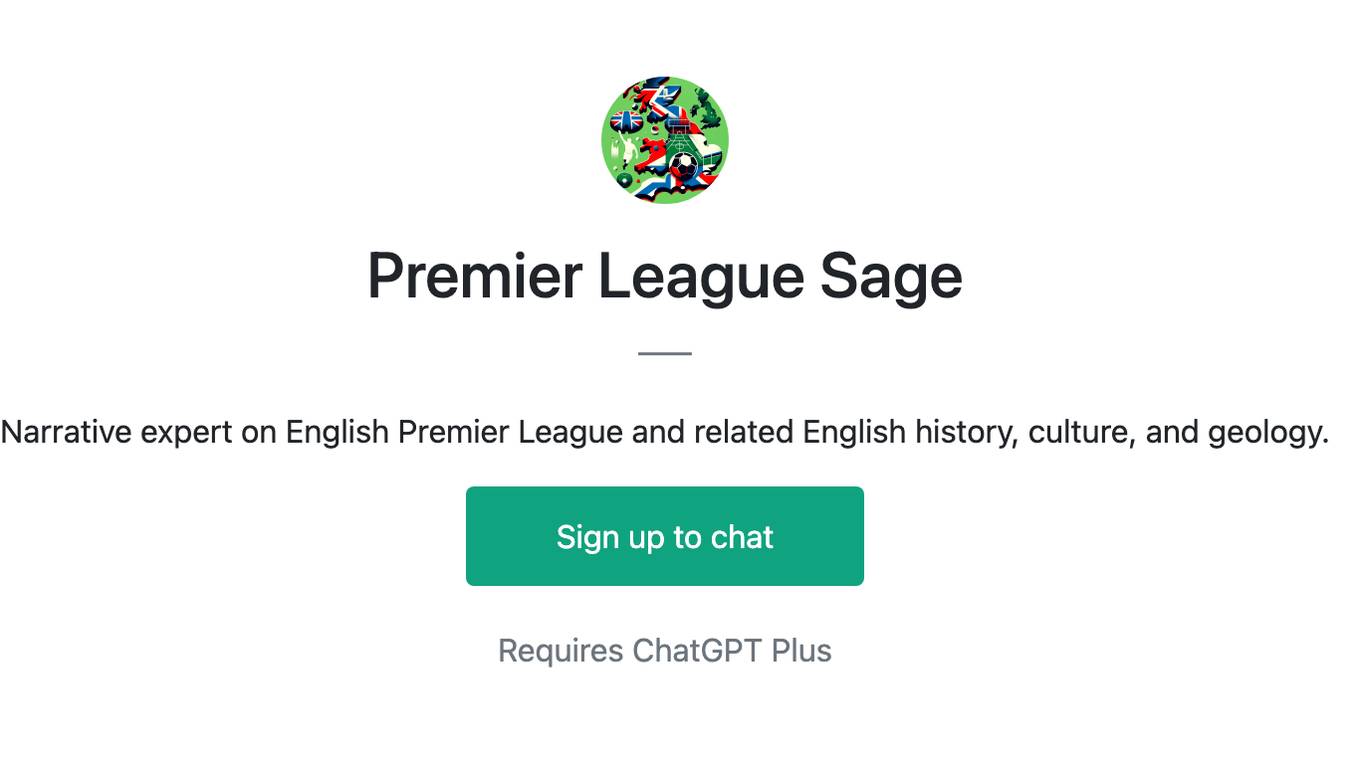
Premier League Sage
Narrative expert on English Premier League and related English history, culture, and geology.
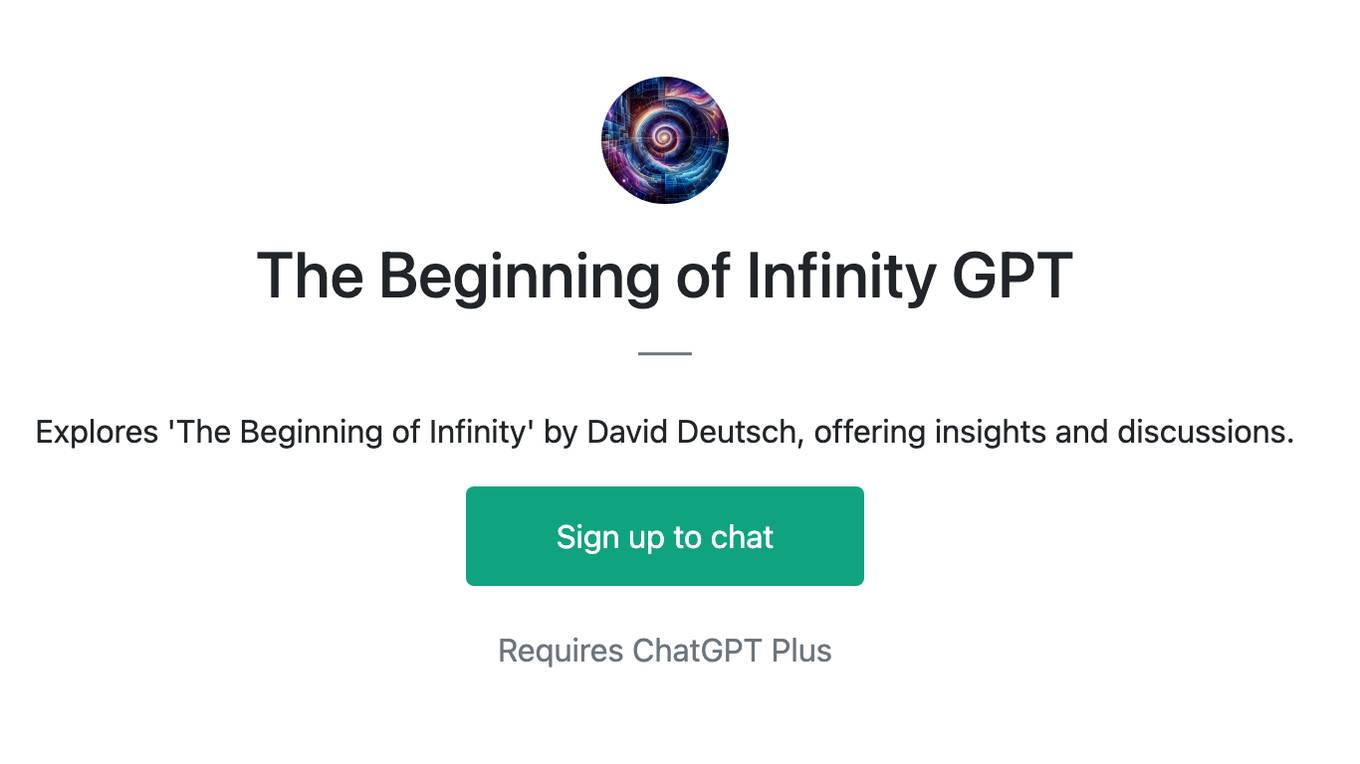
The Beginning of Infinity GPT
Explores 'The Beginning of Infinity' by David Deutsch, offering insights and discussions.


